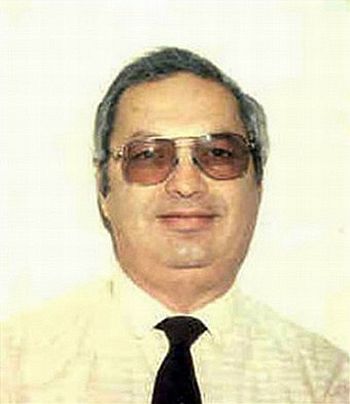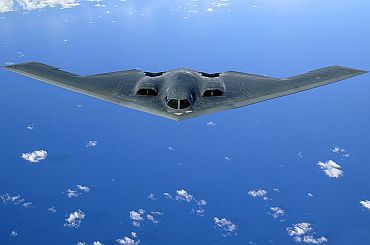 | « Back to article | Print this article |
Indian-American convicted for selling defence info to China
Indian-American Noshir S Gowadia, a former B-52 stealth bomber engineer, faces life imprisonment after a US federal jury convicted him of selling sensitive cruise missile technology and other classified information to China.
The sentencing is scheduled for November 22, 2010.
"Gowadia provided some of our country's most sensitive weapons-related designs to the Chinese government for money. Today, he is being held accountable for his actions," Assistant Attorney General for National Security, David Kris said.
Gowadia, 66, now faces life imprisonment.
The court found Gowadia guilty of five criminal offences relating to his design for China of a low signature cruise missile exhaust system capable of rendering the Chinese a cruise missile resistant to detection by infrared missiles.
It also convicted him of illegally communicating classified information on three other occasions and unlawfully exporting technical information on those three occasions, illegally retaining defence information, and filing false tax returns between 2001 and 2002.
'This prosecution should serve as a warning'
"This prosecution should serve as a warning to others who would compromise our nation's military secrets for profit. I commend the many prosecutors, analysts, and agents -- including those from the FBI and the Air Force -- who were responsible for this investigation and prosecution," Kris said in a statement.
Noting that the United States entrusts people with important and sensitive information critical to the nation's defence, Attorney Florance Nakakuni said the verdict demonstrates that there is a serious consequence to betraying that trust.
Gowadia was first arrested in October 2005 on a criminal complaint alleging that he wilfully communicated national defence information to a person not entitled to receive it.
He was charged with additional violations in a 2005 indictment, a 2006 superseding indictment and a 2007 second superseding indictment.
Gowadia was an engineer with Northrop Grumman Corporation from 1968 to 1986, during which he contributed to the development of the unique propulsion system and low observable capabilities of the B-2 Spirit bomber, sometimes referred to as the 'Stealth' bomber.
He was paid at least $110,000 by China
He also continued to work on classified matters as a contractor with the US government until 1997, when his security clearance was terminated.
Evidence at the trial revealed that from July 2003 to June 2005, Gowadia took six trips to China PRC to provide defence services in the form of design, test support and test data analysis of technologies for the purpose of assisting the Chinese with its cruise missile system by developing a stealth exhaust nozzle.
He was paid at least $110,000 by China. The jury convicted Gowadia of two specific transmissions of classified information: a PowerPoint presentation concerning the exhaust nozzle of a PRC cruise missile project and an evaluation of the effectiveness of a redesigned nozzle, and a computer file providing his signature prediction of a PRC cruise missile outfitted with his modified exhaust nozzle and associated predictions in relation to a US air-to-air missile.
The prosecution also produced evidence, which documented Gowadia's use of three foreign entities he controlled, including a Liechtenstein charity purportedly for the benefit of children, to disguise the income he received from foreign countries.
In addition to demonstrating that Gowadia under-reported his income and falsely denied having control over foreign bank accounts for the two tax years involved in his convictions, the evidence at trial revealed that he had not paid any income tax since from at least 1997 until 2005 when he was arrested.


